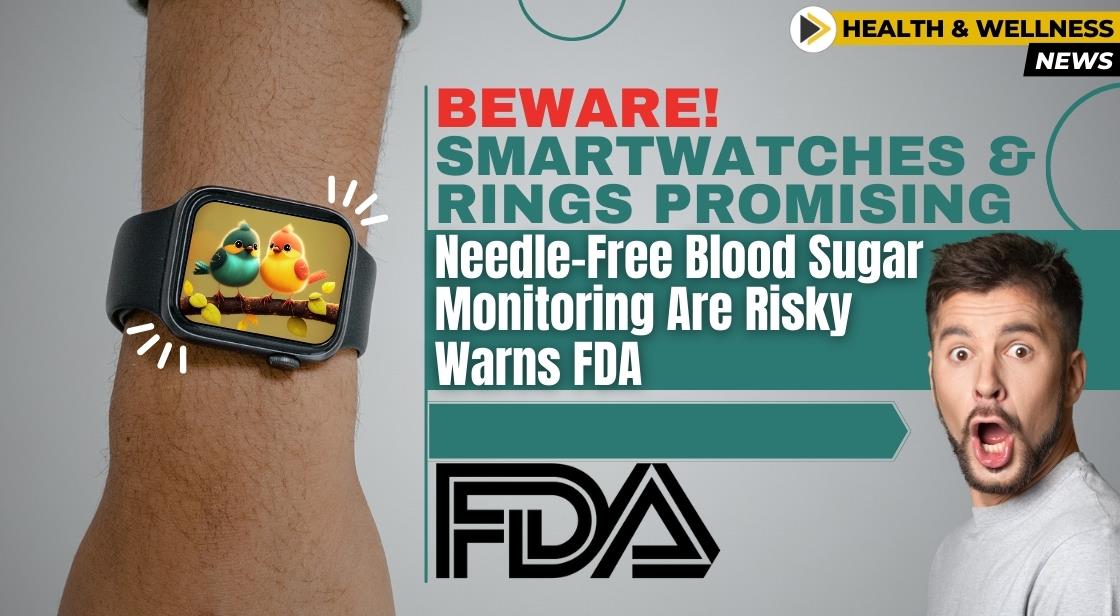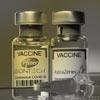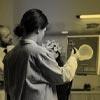FDA Issues Warning Against Smartwatches and Rings Claiming Non-Invasive Blood Sugar Measurement

News Synopsis
The US Food and Drug Administration (FDA) has issued a cautionary statement, advising against the use of smartwatches and rings that claim to measure blood sugar levels without the need for skin penetration. The warning encompasses devices of any brand making such assertions, emphasizing that the FDA has not authorized any such technology.
FDA Caution and Specifics:
The US Food and Drug Administration FDA's advisory is directed at devices asserting non-invasive blood glucose measurement, regardless of the brand. The agency highlights that it has not granted authorization to any device making such claims. Importantly, the notice does not apply to smartwatch apps connected to approved sensors, such as continuous glucose monitoring systems that directly measure blood sugar.
Why the FDA Warning?
Inaccurate Readings: The FDA emphasizes that the technology used in these devices is not accurate enough to measure blood sugar levels reliably. This can lead to:
Incorrect medication doses: Misinterpreting blood sugar levels could lead to over- or under-dosing of insulin, potentially causing life-threatening complications.
Delayed medical attention: Inaccurate readings might delay seeking necessary medical attention for dangerously high or low blood sugar levels.
No FDA Approval: Currently, no smartwatch or ring claiming non-invasive blood sugar measurement has received FDA approval. This lack of regulatory oversight raises concerns about safety and efficacy.
The Dangers of Unregulated Devices:
Dr. Robert Gabbay, from the American Diabetes Association, warns that using unapproved devices could have "potentially devastating" consequences. He highlights the risk of:
-
Dangerous blood sugar levels: Inaccurate readings could lead to dangerously high or low blood sugar, potentially causing symptoms like confusion, coma, and even death.
-
Wasted resources: Relying on inaccurate devices could lead to unnecessary healthcare costs and wasted resources.
Prevalence of Diabetes and Monitoring Challenges:
Approximately 37 million Americans grapple with diabetes, a condition that requires regular blood sugar monitoring due to the body's inability to effectively regulate glucose levels. Current monitoring methods involve finger prick tests or the use of sensors with needles under the skin. Unapproved smartwatch and smart ring devices claiming blood sugar measurement could yield inaccurate results, leading to potentially severe consequences.
Risks and Consequences:
Dr. Robert Gabbay from the American Diabetes Association warns of the dangers associated with inaccurate blood sugar measurements. Incorrect readings could prompt patients to administer incorrect medication doses, resulting in dangerous blood sugar levels. The potential outcomes include mental confusion, coma, or even death.
Non-Invasive Blood Sugar Measurement Challenges:
While various companies are exploring non-invasive devices for blood sugar measurement, none have developed a product secure and accurate enough to receive FDA approval. Dr. David Klonoff, a diabetes technology researcher, notes that the existing technology used for metrics like heart rate and blood oxygen in smartwatches and rings is not accurate enough for blood sugar measurement. Efforts to measure blood sugar in fluids like tears, sweat, and saliva are still in developmental stages.
Expert Opinion and FDA Approval:
Dr. Klonoff stresses the importance of FDA clearance for accurate blood sugar measurement. He suggests that consumers seeking precision can rely on FDA-cleared blood glucose monitors available at pharmacies. Using products lacking FDA approval poses significant risks, and he anticipates future advancements in non-invasive blood sugar measurement technology.
You May Like









